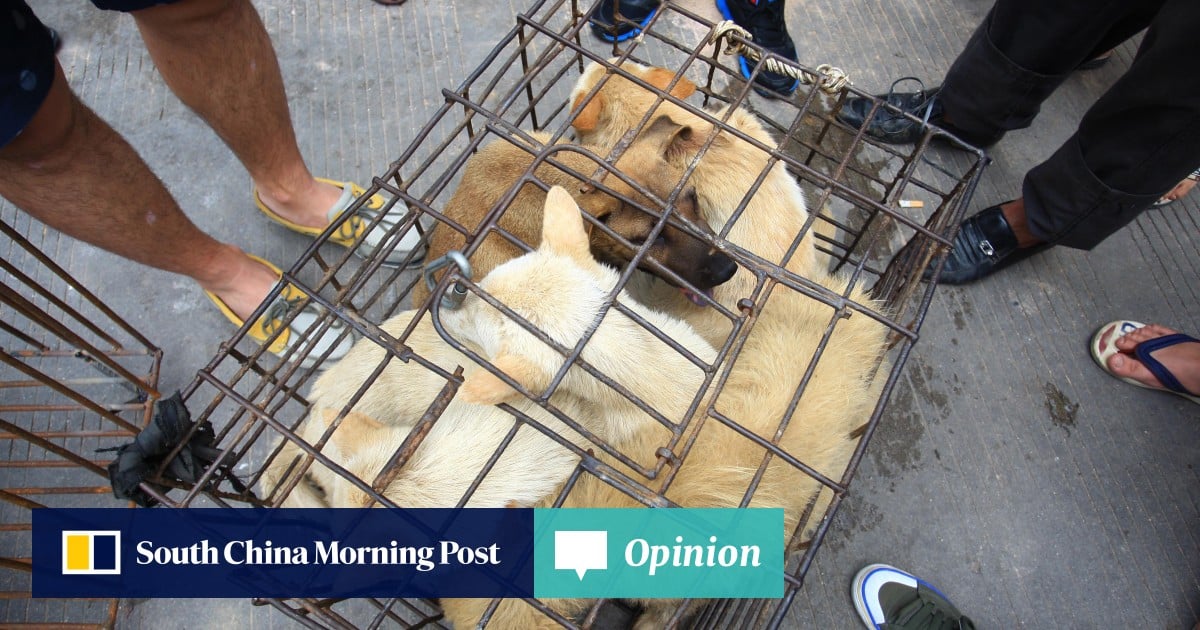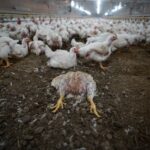In the realm of global animal welfare, few nations evoke as much fervent dialogue as China, a nation steeped in rich cultural traditions and burgeoning modernization. The juxtaposition of ancient customs with contemporary global ethics presents an intricate dichotomy that merits exploration. Despite the optimism infused by progress in legal frameworks and societal attitudes, the persistent undercurrent of animal cruelty emerges as a haunting specter, evoking impassioned criticisms from around the world.
To comprehend the gravity of animal cruelty in China and the international reaction it engenders, one must delve into the fabric of societal norms interwoven with historical perspectives. The custom of eating dog meat showcases a primal connection to survival and sustenance that dates back centuries. However, in today’s interconnected world, where the advocacy for animal rights burgeons, such practices increasingly face scrutiny. The culinary traditions that once defined regions are now confronted with challenging moral quandaries. As metaphors illustrating the clash of eras, goldfish trapped in a bowl symbolize the confinement of outdated customs pressed against the expansive backdrop of modern ethical considerations.
The evolution of animal rights in China is spurred on by a burgeoning awareness among its citizens. The young populace, influenced by global trends and their exposure to social media, exhibits an increasing affinity for animal welfare activism. The rise of platforms like Weibo has allowed animal advocates to amplify their voices, shedding light on cruelty and galvanizing public opinion. Yet, grassroots movements often grapple with entrenched beliefs within segments of society. The struggle for progress resembles a dance where one partner wishes to leap forward while the other clings to a past filled with tradition.
International scrutiny often centers around specific events highlighting glaring instances of animal cruelty, which, although not representative of the entire nation, still casts a long shadow over its global image. The Yulin Dog Meat Festival often stands as a symbol of contentious practices, drawing significant outrage from both domestic and international communities. Incidentally, such festivals can become a focal point for a global audience, captivating the attention of animal rights activists. They serve as a microcosm illustrating the broader struggle between cultural heritage and evolving societal ethics.
Engagement with animal welfare is further complicated by the legislative landscape in China, which, while evolving, remains a work in progress. The existing laws pertaining to animal protection lack the robustness seen in other countries, often relegating animal welfare to a footnote in legal discourse. The Criminal Law of the People’s Republic of China does address severe cases of animal abuse, yet the enforcement remains intermittent and inconsistently applied. Consequently, the proffered legal framework functions more as a suggestion than a mandate, as underwhelming as a leaky roof in a storm.
Moreover, the perception of the Chinese government’s stance on animal welfare becomes entangled with broader political narratives. The tight grip on freedom of expression stifles the voices calling for systemic change. Animal cruelty, thus, becomes emblematic of larger issues surrounding human rights and governance. The state’s reluctance to engage in discussions deemed sensitive could be interpreted as tantamount to turning a blind eye, highlighting a dichotomy between advancing dialogue and maintaining control. In this context, tackling animal cruelty becomes a poignant entry point into greater conversations about ethics, governance, and societal values.
Nonetheless, it is crucial to appreciate the strides made within China towards a more compassionate society. With increased advocacy comes a burgeoning network of non-governmental organizations (NGOs) dedicated to protecting animals from cruelty and promoting humane treatment. Organizations such as the China Animal Protection Network are increasingly involved in rescue operations and public education campaigns. This slow yet steady accumulation of efforts to foster empathy towards animals attests to an unwavering belief in the possibility of change. Just as a single seed can flourish into a verdant garden, so too can individual actions contribute to a collective transformation.
The conversation surrounding animal cruelty in China offers a window into the broader intricacies of cultural identity and ethical evolution. The tension between tradition and progress is not unique to China; rather, it resonates globally as societies grapple with age-old customs in a new light. Around the world, countries experience similar reckonings as they redefine their relationships with animals. The global criticism of China’s animal rights record, while valid, must also account for the complex sociocultural factors at play.
Ultimately, while criticism remains an essential catalyst for change, fostering understanding may prove equally vital. Bridging dialogues between cultural heritage and evolving values can lead to constructive outcomes. Engagement rather than condemnation may pave the way for a more humane future, where animal welfare is woven into the very essence of society. In an era marked by globalization, the shared responsibility toward animal welfare becomes a common refrain sung in harmony rather than discord. As the world watches, China finds itself at a crucial crossroads, beckoning it to script a future wherein compassion reigns supreme—a testament to its evolving identity and moral compass.









